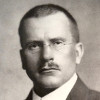“ A man of ripe age deems their nature so unlike his own, that he can only be persuaded that he too has been an infant by the analogy of other men. ”
Baruch Spinoza, Ethics (1677). copy citation
| Author | Baruch Spinoza |
|---|---|
| Source | Ethics |
| Topic | age analogy |
| Date | 1677 |
| Language | English |
| Reference | |
| Note | Translated by R. H. M. Elwes |
| Weblink | http://www.gutenberg.org/files/3800/3800-h/3800-h.htm |
Context
“As I have heard tell of a certain Spanish poet, who had been seized with sickness, and though he recovered therefrom yet remained so oblivious of his past life, that he would not believe the plays and tragedies he had written to be his own: indeed, he might have been taken for a grown—up child, if he had also forgotten his native tongue. If this instance seems incredible, what shall we say of infants? A man of ripe age deems their nature so unlike his own, that he can only be persuaded that he too has been an infant by the analogy of other men. However, I prefer to leave such questions undiscussed, lest I should give ground to the superstitious for raising new issues.
PROP. XL. Whatsoever conduces to man's social life, or causes men to live together in harmony, is useful, whereas whatsoever brings discord into a State is bad.”
source



